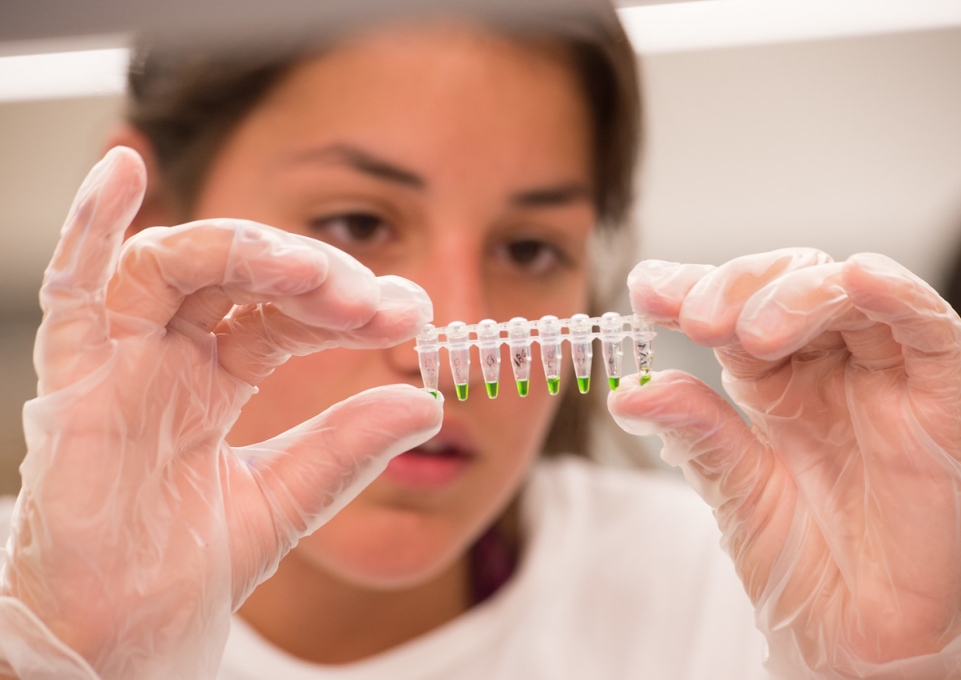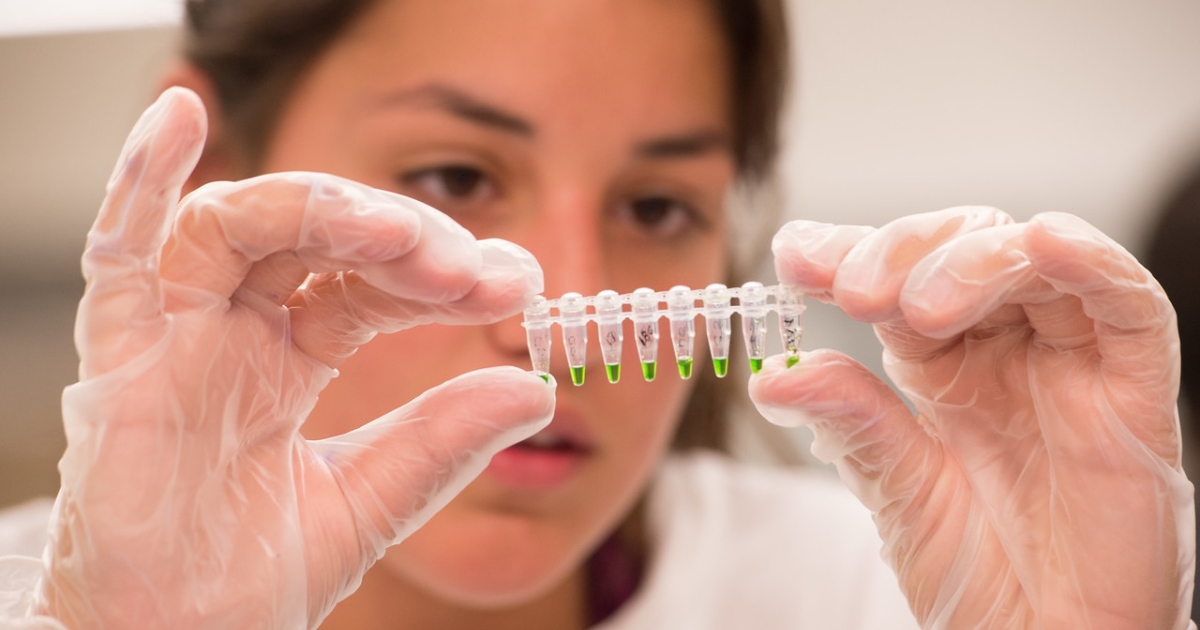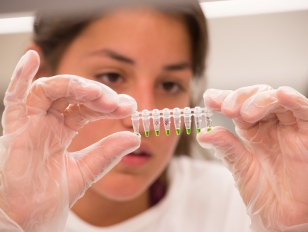
A new Integrated Studies in Nanoscience and Nanotechnology Center on campus aims to bring together several disciplines at Buffalo State College with the goal of taking a comprehensive approach to emerging medical, technological, environmental, and transportation fields.
The new endeavor, the brainchild of Saquib Ahmed, assistant professor of engineering technology, is geared toward helping students, faculty, and businesses work on big ideas from small things—together.
Nanoscience is the study of very small objects, while nanotechnology takes the ideas that come from nanoscience and implements them for a particular product or application.
“The idea is, when you’re looking at any of these disruptive technologies—be it clean energy, be it quantum, be it magnetic—it can’t exist just as a science and engineering project,” Ahmed said. “You need to do the full life cycle. Is this economically viable? Are you working in a silo? Are you working in a black box, just sounding off to yourself? That doesn’t help.”
Disruptive technologies are innovations that significantly alter the way consumers, industries, or businesses have traditionally operated. Over the next decade, Ahmed said, the ideas and applications of nanoscience and nanotechnology are expected to have an outsize influence on several fields, including health care, information technology, and the environment. The new center positions Buffalo State at the cutting edge of those discoveries.
“Buffalo State is the perfect size and the perfect environment for this,” he said. “We’re not too small where we don’t have the resources, and we’re not too big where everything is siloed. We can have these six or seven departments cross-cutting, and not just for the sake of breakthrough research, but also for the sake of making a new generation of students.”
Renewable energy is one area where nanoscience and nanotechnology are having an impact. For clean energy sources, like solar energy, to be more readily available to the average consumer, the costs need to be significantly reduced. It’s the type of issue the center is designed to examine.
“Clean energy is part of Western New York’s heritage,” Ahmed said. “Sharpening our institution to meet the growing demands of the clean energy industry is key to the region’s future.”
Battery power is another topic the center will look at, Ahmed said. The goal is to produce batteries that are made from environmentally sound parts, while increasing how long they hold a charge. The center will conduct research on alternative battery and supercapacitor technologies to work toward more sustainable batteries for everyday items like smart phones, laptops, and tablets.
The center involves faculty members from several disciplines: Sourav Biswas, assistant professor of chemistry; Joaquin Carbonara, professor of mathematics; John Earshen, associate professor of engineering technology; Nicole Hunter, an affiliated faculty member; Arjun Pathak, assistant professor of physics; Xingwang Qian, professor of economics and finance, and Adamu Shauku, assistant professor of political science and public administration, are all part of the project.
“Buffalo State is at the nexus of all these wonderful things,” he said. “We’re the most comprehensive school, and an urban school, right in the heart of Buffalo. We are right in the middle of all this kinetic energy.”
The center will have a social justice theme running through everything it does, Ahmed said. It will, in part, look at the ethical, legal, and social issues around new discoveries and products.
“What is the impact? What are you doing with this technology?” he said.
Students who work with the center won’t just be earning a degree in their chosen field, Ahmed said. They’ll have a number of options upon graduation.
“They’re going to have these diversified skill sets,” he said. “They’ll be more versatile in the workforce. If they want to transition from one area to another, they’ll be able to. They’ll be stronger, they’ll be more aware, they’ll be more ethical. It’s just a great mix of things.”



